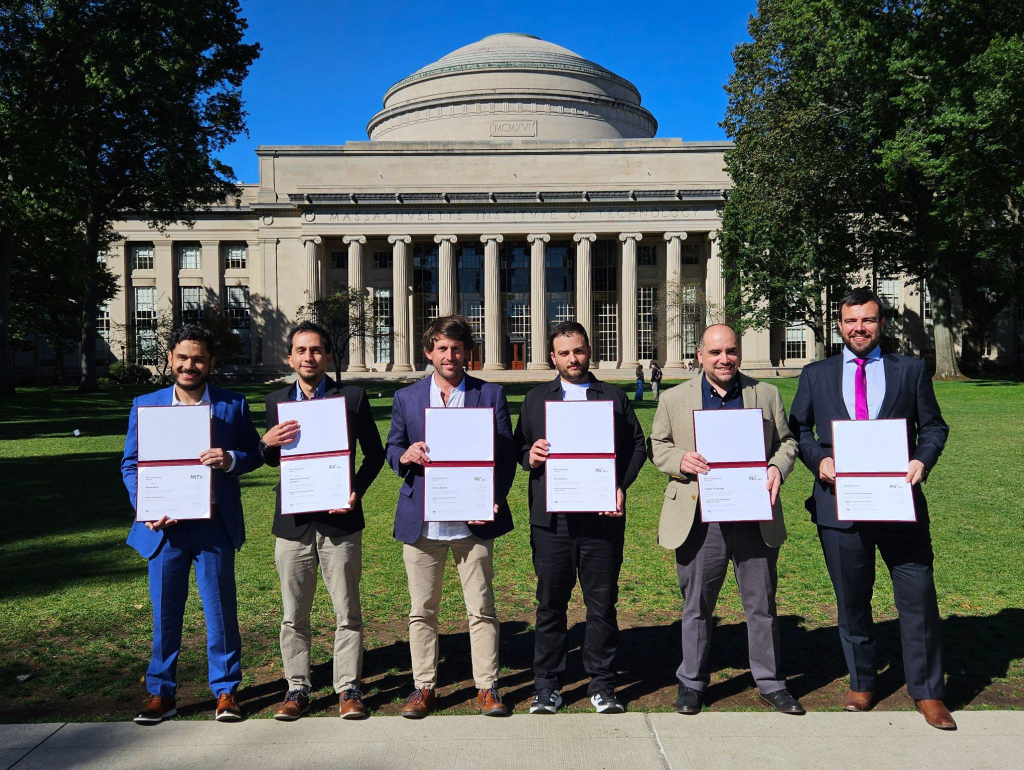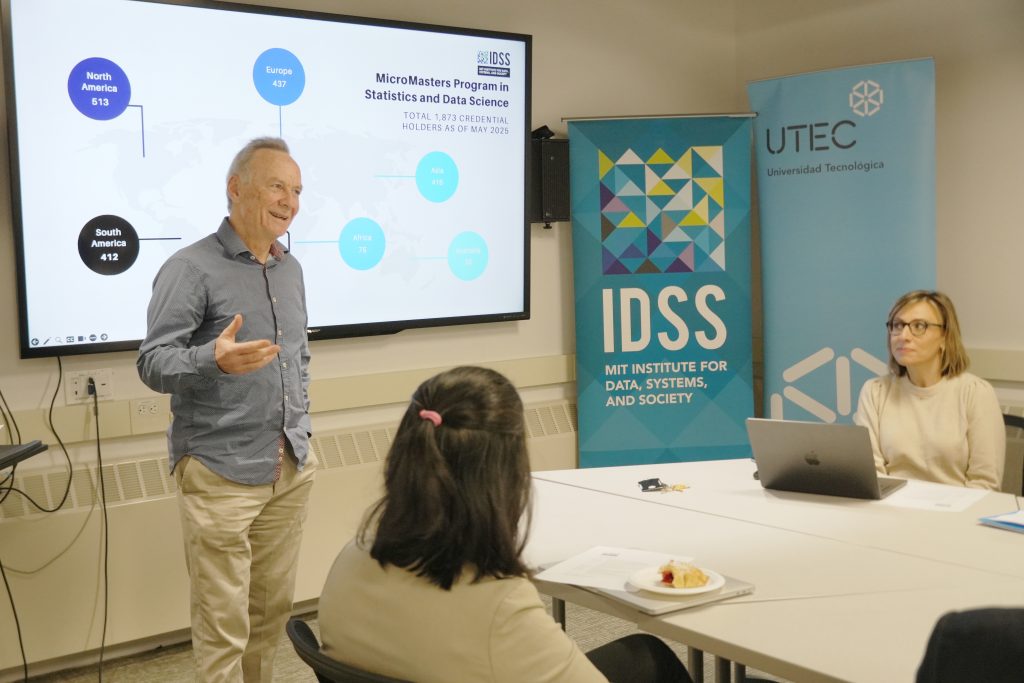
Students from UTEC Uruguay earn Data Science credential from MIT
“It’s a symbol that it’s possible.”
Source: UTEC Uruguay
Original article (en español)
Receiving a credential from MIT is not an everyday occurrence. Students of UTEC’s Master’s in Data Science, a collaboration with IDSS and the MIT MicroMasters Program in Statistics and Data Science, shared their emotions on the once unimaginable experience of receiving a certificate for this joint program: gratitude, excitement at being at a cutting-edge institution, and memories of loved ones.
Gratitude. That was the word chosen by David Franco — a 29-year-old lawyer from Bogotá, Colombia — to describe the moment he received his certificate after completing the MicroMaster’s program with MIT, which forms part of the Master’s in Data Science at the Technological University of Uruguay (UTEC). For David, whose project focused on analyzing rat sightings in New York City, studying at UTEC and then visiting MIT is undoubtedly something to highlight, since it is “one of the best universities in the world.”
The ceremony was held on Thursday, October 9 on MIT’s campus, hosted by IDSS, UTEC’s partner for the Data Science program. Accompanied by several family members, the students spent a memorable day that included a tour of much of the university campus, a shared lunch, and the opportunity to meet in person the professors they had only seen virtually until then.
This was one of the aspects most valued by Wilton Beltré, a 44-year-old computer engineer from the Dominican Republic who also chose to study Data Science at UTEC with MIT. “It brings me great satisfaction and joy. I think it’s something I will continue to process for years to come. It means a lot for me and also for my loved ones, and it’s a symbol that it’s possible,” he said. Like the rest of his classmates, Wilton is currently working on his final project, which focuses on analyzing data on micro-holes in the ozone layer.
Family support is key. Uruguayan student Pablo Trindade attended the ceremony with his partner and their 10-month-old daughter, Sofía — born while he was studying for the Master’s degree. A Computer Science graduate from Parque del Plata, Pablo’s project focused on developing identity-authentication software to improve banking processes. After receiving his certificate, he reflected on those who supported him along the way. “It’s an incredible opportunity to be here — I would have never imagined it.”
“I grew up in a rural area in Uruguay, my parents didn’t finish school, and with great effort they made sure I could study,” he emphasized. “Without the opportunity provided by UTEC, it would have been impossible to access a program like this.”
Major opportunities
The Data Science program between UTEC and IDSS allows students to maintain direct contact with some of the world’s leading professors in the field. These are researchers and scientists who have spent decades studying Data Science, who have received multiple awards, and who now see UTEC as a partner in expanding access to the discipline. For this reason, they emphasized the value of being able to train professionals not only within their institution, but also university graduates from other countries.
Professor John Tsitsiklis is a clear example of this. A leading expert in control theory, optimization, machine learning, and decision systems, he is also a member of the U.S. National Academy of Engineering and a prominent figure in artificial intelligence and complex systems research. During the joint UTEC–IDSS ceremony in Cambridge, several other widely recognized professors who taught in the program expressed what an honor it was to work alongside Tsitsiklis.
“We developed all these Data Science courses so the material would be accessible to everyone. We look for opportunities to establish partnerships, and we were fortunate to see that there was interest from Uruguay. We are happy to know that the material is truly being used,” the MIT researcher noted.

For Tsitsiklis, the most important thing is understanding the fundamentals of Data Science: “Today, any high school student can take a dataset, press a few buttons, and obtain results. But that doesn’t mean they understand what is actually happening.”
He also emphasized the importance of bringing this discipline to different parts of the world. Even though Data Science may be more developed in the United States, Western Europe, and former Soviet countries, “the range of applications today is so broad that they can be used for any type of problem. These technologies can help improve the quality of life around the world,” he concluded.



